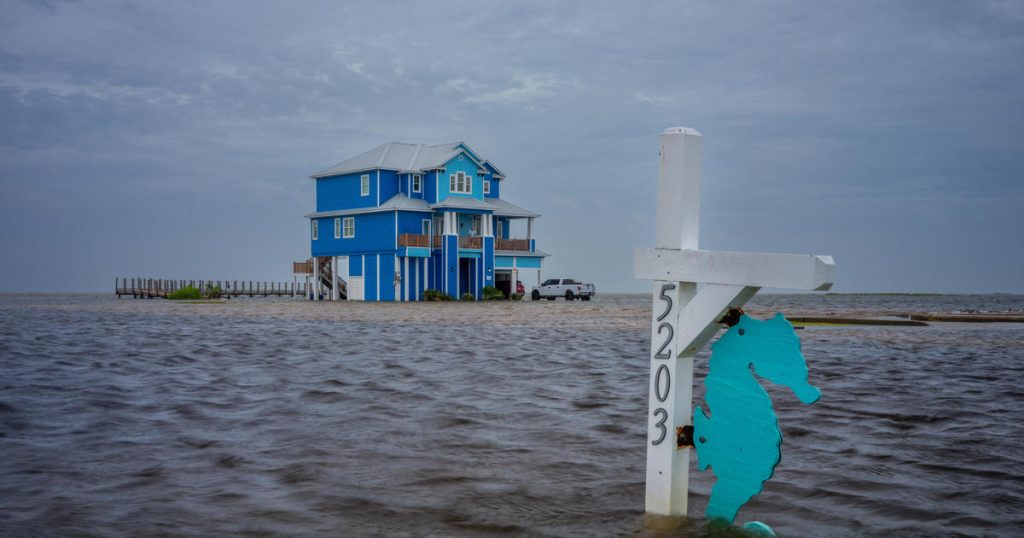Tropical Storm Alberto, the first named storm of the season, brought heavy rains to northeast Mexico, providing relief to a region suffering from a severe drought. The storm was expected to make landfall on Mexico’s Gulf coast and weaken rapidly, dissipating later in the day. Rain from Alberto extended to both sides of the border, covering much of the south Texas coast and south to Mexico’s Veracruz state. The National Hurricane Center in Miami forecasted 5-10 inches of rain in some areas along the Texas coast, with higher isolated totals possible, and up to 20 inches in higher locations in Mexico.
Mexican authorities downplayed the risks posed by Alberto and focused on the potential benefits of the storm in easing water scarcity in the region. The state Secretary of Hydrological Resources in Tamaulipas highlighted the positive impact of the storm on the state’s water needs, which had been suffering from low reservoir levels and a water debt owed to the United States. However, neighboring Nuevo Leon state reported three deaths related to Alberto’s rains, including one in the La Silla River in Monterrey and two minors who died from electric shocks in Allende. The governor of Nuevo Leon announced the suspension of metro and public transportation services in Monterrey until after Alberto passed.
Residents of Mexico expressed hope for the rain brought by Alberto, with one resident in Tampico stating that they had been in need of the water. The lagoon that provides drinking water in Tampico had dried up, emphasizing the importance of the storm’s rainfall. Schools were closed for the remainder of the week in Tamaulipas due to the possibility of localized flooding. The positive outlook on the storm’s impact on water resources contrasted with the tragic effects it had on some areas, highlighting the dual nature of extreme weather events.
Despite the potential benefits of the rainfall brought by Tropical Storm Alberto, there were concerns about the risks of mudslides and flash flooding, especially in the states of Tamaulipas, Coahuila, and Nuevo Leon. Mexican authorities urged caution and preparedness for possible extreme weather events and associated hazards. The storm’s passage through the region emphasized the vulnerability of communities to the impacts of climate change and the importance of adaptation measures to mitigate risks and protect lives and property. Alberto served as a reminder of the unpredictable nature of weather patterns and the need for resilience in the face of natural disasters.


